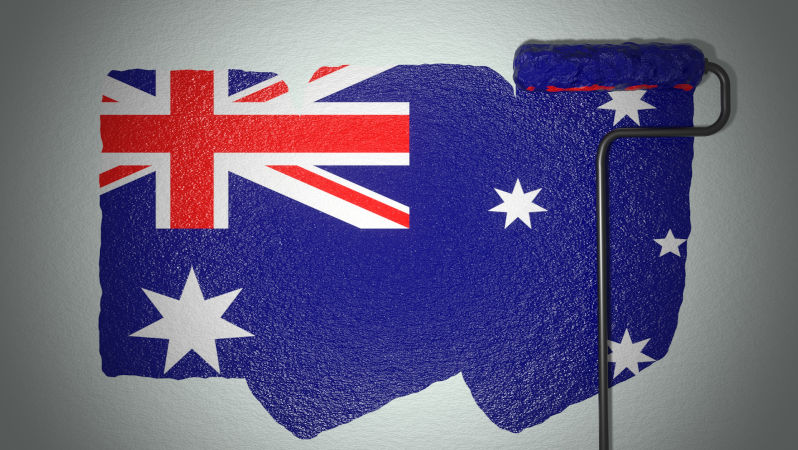Despite claims to the contrary, Australia is not a well governed country. At all levels of politics, in businesses large and small, and in the wider society, governance systems right across the country have been hollowed-out.
The term governance refers to how institutions that have varying degrees of power over us actually exercise that power. They include governments, banks, business corporations, trade unions, community organisations, education providers, religious groups, and cultural associations. Three elements constitute the core of what governance is all about: policy, ethics and strategy.
Policy refers to the plausible visions that galvanise the operations of organisations. Ethics refers to the principles that guide organisations in their dealings with workers, clients and consumers. Strategy refers to the means employed by organisations to realise their policy visions. Good governance results from a sustained balance between these three elements; all must be equally in play. When policy, ethics and strategy become unbalanced, hollowed-out governance inevitably follows.
For years now, Australia has been afflicted by hollowed-out governance systems. In politics and business, policy-making is focused on the short-term. As the 2017 Royal Commission into Misconduct in Banking, Superannuation and Financial Services made very clear, ethical considerations are all but absent from much of the country’s governance cultures. Strategy has been elevated as the single most important feature of our governance systems resulting in the marginalising or dismissing of the other two components, notably ethics.
The hollowing out of governance in Australia is particularly evident right across contemporary local, state and federal politics. It is glaringly evident at the federal level. With a few positive exceptions among the independent MPs in Canberra, the focus of the mainstream parties is on strategising, with little or no concern for good policy or the ethical considerations that should be guiding them.
As leading politicians in the country, prime minister Anthony Albanese and opposition leader Peter Dutton epitomise the prioritising of strategy to the exclusion of policy and ethics. Neither is ever likely to achieve the status of statesmen in the country’s political history. Opportunistic strategising will be their sole legacy.
Peter Dutton’s addiction to strategy over policy and ethics was evident in his ruthless attacks on the idea of an Indigenous Voice to Parliament. The appalling statistics relating to incarceration rates, poverty, school drop-out rates, shocking levels of ill-health, crime rates, and so forth that Indigenous Australians struggle with every day were simply collateral political damage for Dutton. His stance had nothing to do with sound policy or the ethics of good governance. It was simply a case of deploying a strategy to defeat the Yes case, hence the government.
Moreover, Dutton’s instinct for prioritising strategy over good policy and sound ethics is starkly evident in his espousal of nuclear power generation for Australia. The lack of detailed analysis of the scheme he is advocating (in tandem with his shadow minister Ted O’Brien, the J.D. Vance of Australian politics) exemplifies their wholesale acceptance of hollowed-out governance. The strategy they are pursuing is three-fold: (i) to depict Albanese and his government as weak; (ii) to please their fossil fuel backers; and (iii) to reproduce the combative political culture that has become the raison d’étre of the Coalition since the grim years of the Abbott government.
As one of the most cunning politicians in the present parliament, Dutton knows that Albanese is terrified of being wedged on policy matters. Imagine how Gough Whitlam would have dealt with Dutton. One recalls his demolition of opposition leader Billy Sneddon in the parliament! Whitlam knew how and when to be bold. Meanwhile, all we get from Albanese is querulousness. Whitlam’s break-through style is no doubt beyond the talents of Albanese, but surely there are others on the front bench who could and should put Dutton in his place?
Albanese’s greatest error in the Voice to Parliament campaign was to ignore the first law of constitutional change in Australia: constitutional change can only come about with the support of all the major parties. Albanese’s obstinate strategy of pushing on when it became clear that the referendum was going to fail, demonstrated his weakness in policy innovation, and his ethical emptiness. His only recourse was to strategy and in that his ineptitude was writ large.
His worst failure to date is the National Anti-Corruption Commission (NACC). Promising an effective and active anti-corruption body was exceptionally good policy and was the one election promise he should have kept to the letter. The public were crying out for it. Expectations were high. But Albanese timidly squibbed it. He consulted with Dutton about how the Commission’s powers could be agreed to by the two major parties. What we’ve ended up with is a straitjacketed NACC, as is evidenced in its gross mishandling of the Robodebt scandal.
But Dutton and Albanese are the tip of a hollowed-out governance iceberg that is holding contemporary Australia back on so many levels. This is true not only of governments at federal, state and local levels, but also of business and the finance industry (the big banks are out of control), of the education sector (especially higher education), of the health sector (medical specialists are fleecing patients), of the legal system (justice is simply out of reach for most people). Donald Horne’s view that Australia in the sixties was governed by second-rate people pales beside the hollowing out of governance systems up and down the country today. Many in leadership positions today, right across the board, are singularly third-rate.
However, in politics at least things are beginning to change. A younger generation of politically-committed people is coming in from the wings. The sound policy focus and ethical awareness demonstrated by Senator David Pocock, for example, is a positive sign of things to come. Some of the teal independents are also demonstrating an awareness that good governance is fundamentally based on policy, ethics and strategy. They are aware that the three elements of governance must be in equal balance.
Voters are watching closely. The coming election could be a watershed moment in bringing Australian governance back from the brink where it presently totters. A minority government may help to achieve this. Now that would be a blessing.
Dr Allan Patience is an honorary fellow in political science in the University of Melbourne.

